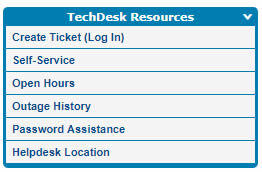Reading in the Content Areas K-12 (RDGED 702) - 3 credits


| Instructor: | Dr. Mary Beth Crum |
| Telephone: | 847-259-5513 |
| E-mail: | crumm@uwstout.edu |
Welcome!
In this course you will learn how to enhance the overall level of reading achievement for
- vocabulary
- literal understanding
- inferential reading
- comprehension
- fluency
- retention.
Course Description
Research-based teaching methods, study strategies, and technology focusing on the abilities to use language processes (reading, writing, speaking, listening) to learn subject matter across the curriculum.
 Please note well!
Please note well!
For your convenience, all links to readings on the Internet will open in a new tab on your browser. This will allow you to bookmark, print, cite pages, etc.
To return to this page, simply close the new tab.
This will be our practice for the rest of the course.
Textbook to Purchase
Serravallo, J. (2015). The reading strategies book: Your everything guide to developing skilled readers. (1st ed.). Portsmouth, NH: Heinemann. ISBN: 978-0325074337
E-Textbooks
- Billmeyer, R. (2006). Strategies to engage the mind of the learner: Building strategic learners (2nd ed.). Rachel & Associates, Inc., Omaha, NE. ISBN: 978-0-9711292-5-2
- Billmeyer, R. (2010). Strategic reading in the content area: Practical application for creating a thinking environment. (2nd ed.). Rachel & Associates, Inc., Omaha, NE. ISBN:978-0-9711292-6-9
eTextbook Technical Support
- Available 8 AM- 4:30 PM CST Monday-Friday
- Phone: (715) 232-5474
- Email: etexthelp@uwstout.edu
Additional recommended web-based articles will be available via the course modules.
Software
![]() Microsoft Word is required in all courses at UW-Stout when submitting projects. It is highly recommended for composing discussion postings, as well.
Microsoft Word is required in all courses at UW-Stout when submitting projects. It is highly recommended for composing discussion postings, as well.
Office 365 is provided free of charge to all enrolled students. Click here for information on how to download and install the software.
If the file is created using Google Docs or Apple .pages, convert the file to a Word document (.doc or .docx) before uploading for assessment.
If you are sharing attached documents during peer collaboration projects, please convert all files to Word so that everyone can view in a universally compatible format.
Useful Tutorials
University Email
Checking your university email daily is recommended.
Mobile Phone Access to Your Email
You may configure your mobile device to receive your university email automatically. Directions are provided at Email on Smartphone.
Click on the appropriate link for directions that match your device.
If you need assistance, please call 715-232-5000.
Course Objectives
Participants who complete the online course will be able to:
- Analyze current literacy culture trends affecting all readers in K-12 content classrooms. (ILA: 1, 5)
- Analyze the school and community cultures affecting content readers' reading behaviors (ILA: 4, 5)
- Informally assess the reading ability of students and the content difficulty load of texts. (ILA: 2.1, 3.2)
- Apply a multi-level reading comprehension model for use in developing content reading strategies. (ILA: 1.1, 2.2)
- Apply strategies that increase content reader ability to respond from literal through complex levels of understanding (ILA: 1.1, 2.2)
- Recognize the three basic types of vocabulary learners and demonstrate ways to teach new vocabulary effectively (ILA: 1.1, 2.2)
- Demonstrate strategies that teach students eight patterns of nonfiction found in most content text material. (ILA: 1.1, 2.1, 2.2, 2.3)
- Utilize high utility study guides to increase content comprehension. (ILA: 1.1. 2.1)
- Distinguish between and apply strategies for teaching learning skills (e.g., attitudes, goal setting, monitoring) and study strategies (e.g., note taking, organizing, test taking) (ILA: 1.1. 2.1)
- Blend the science of content reading (e.g., strategies, guides, and resources) with the art of effective teaching (e.g., motivation, personal literacy, and classroom management) (ILA: 2, 4.1, 5.4)
- Develop a Professional Learning Community by sharing a content reading literacy best practice with colleagues. (ILA: 2.4)
Course objectives are aligned with the International Literacy Association’s (2017) Reading/Literacy Specialist Standards.
Course Outline
Defining reading in the content area: student and teacher challenges
Content text comprehension: factors that affect understanding
Coaching content Readers: "On deck circle" strategies Before students begin to read
Vocabulary development: Vocabulary strategies for advanced, language impoverished and disabled readers
Strategies for building literal or "plain sense" understanding of text
Reading between the lines strategies for teaching content inference ability.
Summarizing strategies for use After reading
Combining literal understanding with inferential thinking
Student developed questioning strategies
Abstracting and extrapolating ideas from text: strategies that teach readers how to create "home run" comprehension products
Recognizing patterns of narrative text and using nonfiction trade books
Guiding students through complex text content: four high utility study guides
Identify challenges for English Language Learners (ELLs) in content area and classroom reading.
Instructor-Student Communication
The primary methods for communicating with students with be via
Course Announcements
Updates, instructions, advice, and tips will be posted in each module’s Question and Answer discussion page. Remember to check it each time you log in to your course. Please log in at least four times a week. Be sure to check the To Do list as well.
Discussion
Check the Discussion Board posts and responses regularly and remember that your level of Discussion Board participation and your discussion summary will be factored into your grade.
Your UW-Stout Email account
Check the university email at least every other day. Daily is better. No course communication will be sent to your home/work personal email accounts.
Grades and Instructor Feedback
At the end of each module, check the grade and comments provided in the Grades link to view personalized feedback from the instructor.
Instructor's Online Schedule
Questions and Feedback from the Instructor
I will always check the "Questions for Dr. Crum" Discussion Board first when logging into the course. I will log into the course early each morning and again in the evening Monday-Saturday, and will not log in during the day on Sundays. I will login on Sunday evenings. My goal is to be as responsive and helpful as possible.
Instructor Email Response Timeline
Please wait at least twenty-four hours before emailing the same question again. If there is no response to an email or a Q&A posting within three days, then I may have missed seeing the email/posting. Sometimes emails go into some "cyber black hole" and are never received. If there is no response, please send it or post it again.
I review all the postings on the Discussion Board. However, I do not respond to every discussion posting. My goal is to maintain an active presence in the discussions without dominating the conversation. Sometimes we will wait to add my responses until students in the class have had the opportunity to respond. Experience has shown that when I respond too soon or too frequently, it reduces the level of student-student interaction.
My goal is to be as responsive and helpful as possible with meaningful feedback. Scores on assignments that are due on Sunday or Monday night are provided in the grade book by the following Friday.
Although you may choose to submit your assignments early, I do not begin grading assignments until after the due date.
Questions directed specifically to me about grades, or a personal concern should be sent by email. Please allow twenty-four hours so that I can be thoughtful in the response to you. If you send an email any time on Sunday, the response time may be longer.
Please schedule an appointment ahead of time via email if you would like to set up a telephone conversation or chat/Skype/Facetime conversation.
Participation and Collaboration
While online education is highly flexible and designed to meet your schedule, you will need to set and meet deadlines as part of your weekly assignments and collaborative work. Your instructor will provide a weekly To Do list and Calendar describing Assignment and discussion posting due dates.
Additionally, your peer learners will depend on timely feedback as you interact via the Discussion Board and work together on small group tasks.
Course Discussion Board
Many of the course activities will occur on the Discussion Board, so it is essential that you check it regularly each week. You will also share all assignments to the Discussion Board.
Perhaps its most vital use, however, is the exchange of ideas that can occur among class participants. You will be able to communicate with everyone in the class through your postings to the Discussion Board. Communicate with each other frequently and freely.

Be active and participate in the discussion on two or more days a week. Don't submit all your response postings on one day or only at the beginning or only on the last day of the module.
Discussion postings should be distributed throughout the module (not posted all on one day or only at the beginning or just on the last day/night of the module).
Please review these pages:
Student Expectations and Responsibilities (opens in a new window)
If your professional/personal obligations or illness require you to be absent for more than three days, please contact the instructor.
Please do not "drop out" for a period of time and then expect to "drop back in" without losing points. This makes it difficult for your colleagues to complete their response assignments.
Social Media Course Activities
During the class we will use public social media tools, such as Google Docs, to share information.
These tools are outside of Canvas, the university's learning management system, and your postings may be viewed by individuals who are not class participants. We encourage your participation in these activities and expect that you are respectful and professional in all social media interactions with peers and faculty.
Options will be offered to use an alternate profile if you prefer not to use your name. You will not be required to release any personal information on a public site (i.e., email address, mailing address, cell phone number, birth date, or photo).
Safe practices to protect your privacy and suggested security settings will be discussed during the introduction to the first social media activity.
No instructor feedback will be posted on social media that might indicate your grade, course enrollment, and class schedule as per the Family Educational Rights and Privacy Act (FERPA).
Social media tools routinely collect, store, and share data about their users. These data are usually maintained in aggregate, but personalization techniques are used and bring exposure (in the forms of direct advertising, for example) to the user by third party sites or tools.
University IT Acceptable Use Policy
Private Email Communication with the Instructor
When emailing the instructor privately, include the course name and section number, your full name, and a complete explanation. This information allows me to give you the best possible answer as quickly as possible since multiple sections of courses are taught each term. You can also email the instructor within the Canvas classroom.
Evaluation
Each student's participation and performance in class will be evaluated using rubrics created for the activities described below. The percentages which follow each activity represent the weight used in determining the final grade.
Dialogue among class members is critical as we will practice one of the most important points in reading comprehension; readers always "construct their own comprehension." Writing and talking are the tools of construction.
Assignments and Percentage Values
| Course Assignment | Weights |
| Discussion postings and responses | 63% |
| Mod. 1 Survey | 1% |
| Mod. 1 Scavenger Hunt | 1% |
| Mod. 4 Vocabulary Strategy Action Plan | 4% |
| Mod. 5 Group Activity Quiz | 11% |
| Mod. 7 Reflection | 3% |
| Mod. 9 Professional Development Presentation | 12% |
| Mod. 10 Book and Website List | 4% |
| ePortfolio | 1% |
Rubrics
Rubrics are linked to the grading system. You can also find by clicking on the three dots at the top right of the discussion screen and select Show Rubric.
Grading Scale
A 100-94
A- 93-91
B+ 90-88
B 87-84
B- 83-81
C+ 80-78
C 77-74
F 73 or below
To maintain Full Academic Standing, a cumulative GPA of 3.0 is required for graduate students.
Only courses in which a student earns a grade of B or better may be included for reading teacher certification. If a student in the reading teacher certification program receives lower than a B in a required reading course, the course must be repeated. The grade earned when taking the course the first time will continue to be counted in the calculation of the GPA.
Release Dates for Discussion Topics and Assignments
This is not a self-paced course.
You will be required to communicate with others in a group within the discussions and during a few group/partner activities.
If you choose to work ahead, save the postings or assignments on your computer until the appropriate discussion topic opens for the week.
Online Attendance and Late Policy
In an online course, you are not required to attend at a particular location or time of day.
This course is designed as an interactive course in which you contribute and respond to the discussion postings of other students.
Your instructor has access to a dashboard login summary displaying the date of each entry you make to the Discussion Board or Assignments — this includes a response to an assignment, a posting on the threaded discussion, submission of an assignment, or participation in group work.
Prompt submission of assignments for assessment allows the instructor to provide guidance and timely feedback. Due dates for each module are published on the course calendar. Work turned in by midnight on the due date will be considered on time and will receive full credit.
Excused Makeup Work - If a late submission has been requested and approved in advance of the due date, there will be no deduction of points from the assignment grade. Send an e-mail to the instructor requesting an extension and to discuss an alternate due date.
Unexcused Makeup Work - If you have not requested an extension prior to the assignment due date, the late assignment will be considered unexcused. Assignments or postings not completed within the week will result in no credit with a score of zero entered as the assignment or discussion grade.
Emergencies arise, and the late policy can be waived at the instructor's discretion in case of an emergency. Emergencies are defined as events which are serious and unexpected. Emergencies cannot be written on the calendar in advance. Examples of emergencies are: heart attacks, car accidents, serious health crises of the student or someone in the student's immediate family. Examples of non-emergencies include family weddings, vacations, conferences, or any other event which is known in advance. Students are encouraged to work ahead when necessary if there are planned family events or travel. Students should contact the instructor to make arrangements to work ahead or to request a waiver of the course late policy.
Accommodations
If you believe the course requirements create a conflict with your observance of religious holidays, please notify the instructor within the first two weeks of the course so that appropriate alternative options can be arranged.
Student Services
Accessibility
UW-Stout strives for an inclusive learning environment. If you anticipate or experience any barriers related to the format or requirements of this course, contact the instructor to discuss ways to ensure full access.
If you determine that additional disability-related accommodations are necessary, contact the Disability Services office for assistance 715-232-2995 or contact the staff via email at Disability Services.
Academic Honesty and Misconduct
Students are responsible for the honest completion and representation of their work, for the appropriate citation of sources, and for respect of others' academic endeavors. Students who violate these standards must be confronted and must accept the consequences of their actions. The disciplinary procedures can be found on the Student Academic Misconduct/Academic Discipline Procedure website.
Citations
In course discussions, reflection papers, or any other learning artifacts created for the course, you are expected to include APA citations when using or quoting the published work of others.
Refer to these Tips for documenting direct quotes in a discussion posting or paper.
See: "short quotations" and "long quotations" and "summary or paraphrase."
Technology Requirements and Assistance
This is a web-based distance education course and all of the content, activities and the student-to-student and student-to-faculty interactions for this course will take place through the learning management software.
It is important to be able to access and use this system in order to be successful in the course. Check your computer settings to make sure the technology works for you.
Specifications recommended for students using personal laptops for online coursework
If you are using your work computer and cannot log in to the course due to technical issues, please check with your employer's tech support person.
Technology Help Desk
For any problems with a username or password, logging in to Access Stout to view the course content, email, or viewing final grades you may:
submit a Help Desk Ticket using the navigation on the Tech Help site, shown below.
orCall 715-232-5000
orEmail techdesk@uwstout.edu .
Librarian's Help Resources
Stout's distance learning librarian will be happy to answer any library-related questions you might have.
Contact AskaLibrarian at https://library.uwstout.edu/askALibrarian
The UW-Stout Library offers many resources to assist you.


